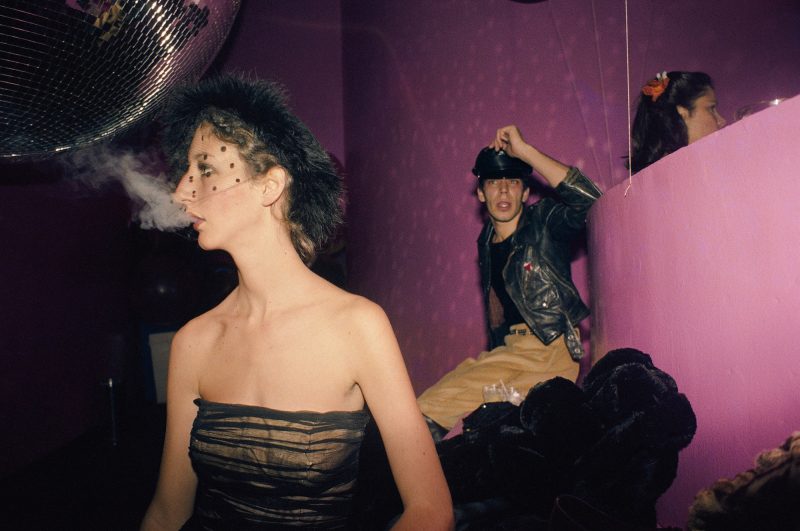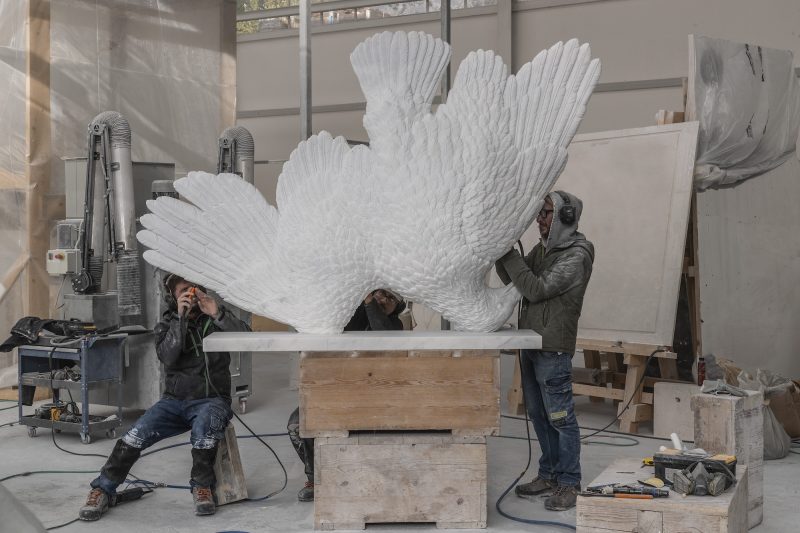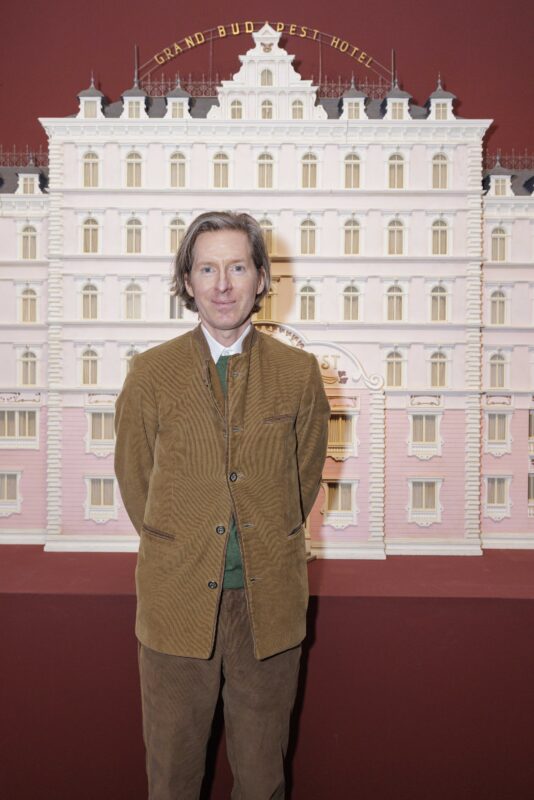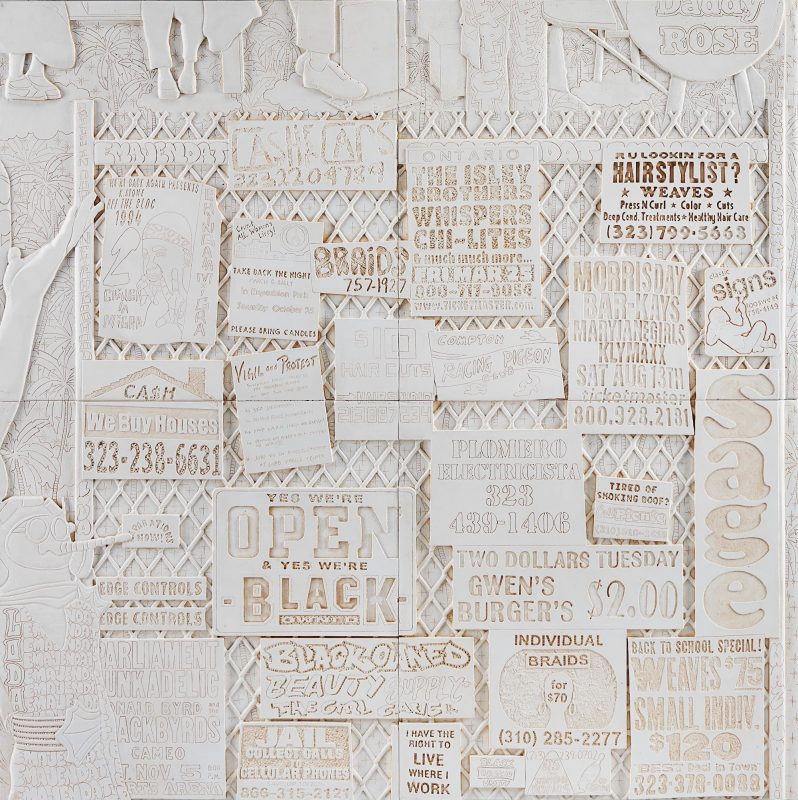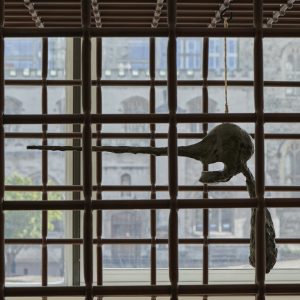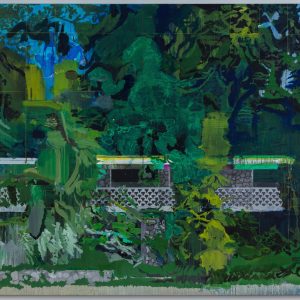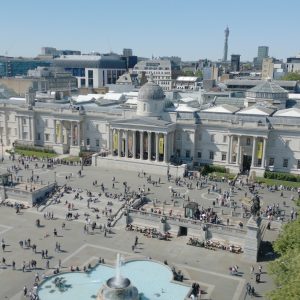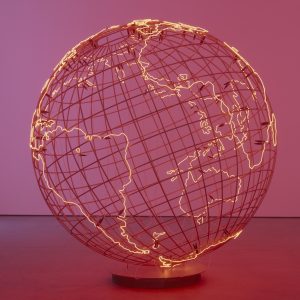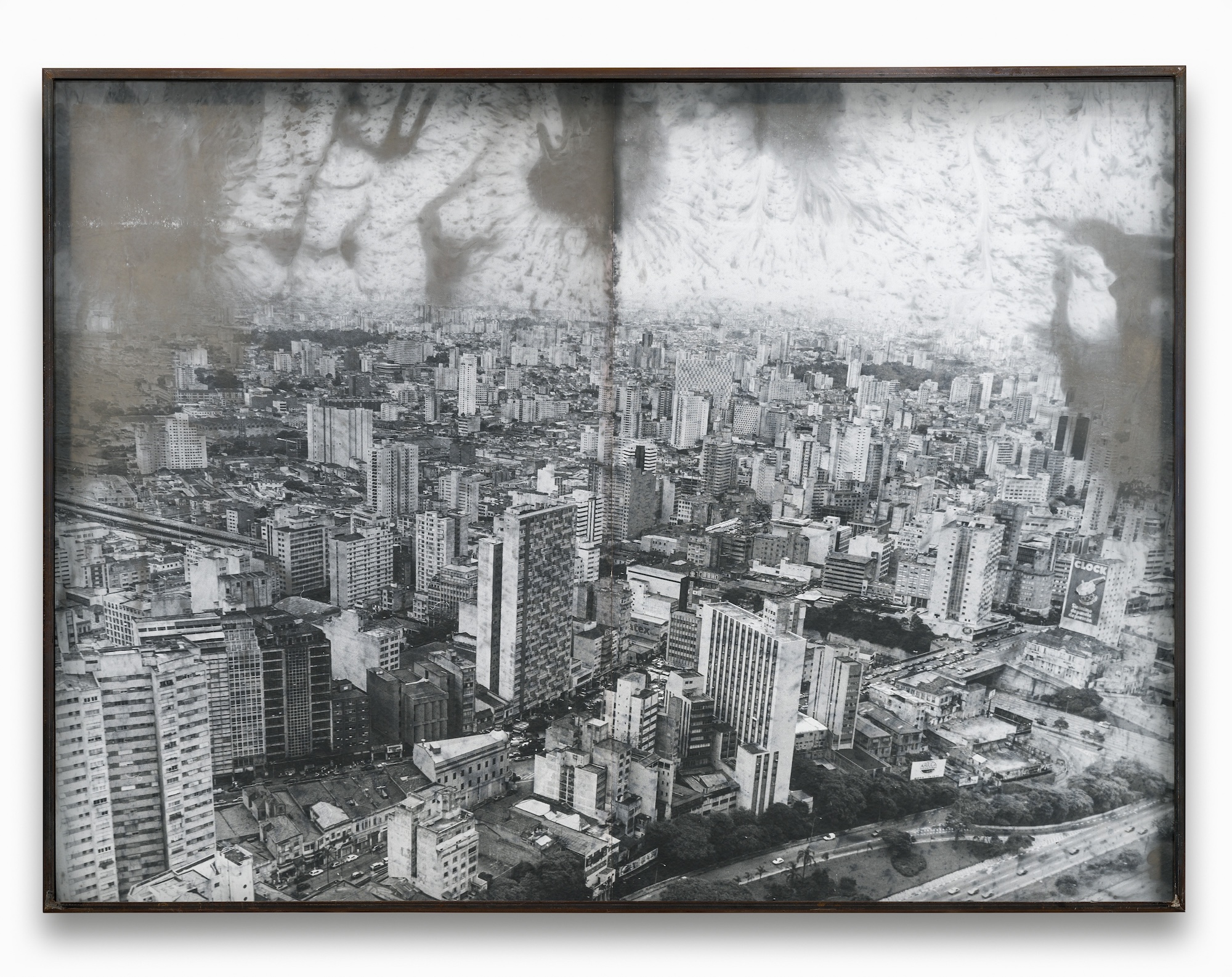
Gelatin silver print with silver toner, in steel frame 55 1/2 x 75 1/4 inches (141 x 191 cm) © Anselm Kiefer
Photo: Charles Duprat Courtesy the artist and Gagosian– Anselm Kiefer: Punctum
Gagosian to open Anselm Kiefer: Punctum, the first exhibition in the United States to center exclusively on Anselm Kiefer’s photography.
Photography has been an important but under-recognized aspect of Kiefer’s practice since 1968, when he began using his father’s 35mm camera. The medium underpins the evolution of the artist’s paintings and is a key component of his books. Punctum offers new perspectives on his exploration of materials and processes, and on the symbolic and expressive potentials of photography.
The exhibition’s title refers to a concept formulated by Roland Barthes in his critical text Camera Lucida: Reflections on Photography (1980). Punctum (Latin for “puncture” or “wound”) connotes a detail of a photograph that elicits a feeling or personal impact outside those formed principally by its culturally coded subjects. As if picturing a memory of something that never happened, Kiefer’s photographs convey a comprehensive, evocative, even melancholic aura beyond conventional representations of time and place.
Returning to perennial motifs and images, the photographs reinforce the continuity of themes such as ruin and destruction, and growth and renewal, across Kiefer’s oeuvre, with subjects ranging from sunflowers and snow-covered fields to dense cityscapes of São Paulo. Works titled Merkaba (2010–13 and 2010–15) and Jericho (2010–15) picture the tower sculptures at La Ribaute, his former studio complex in Barjac, France—now part of his foundation, Eschaton.
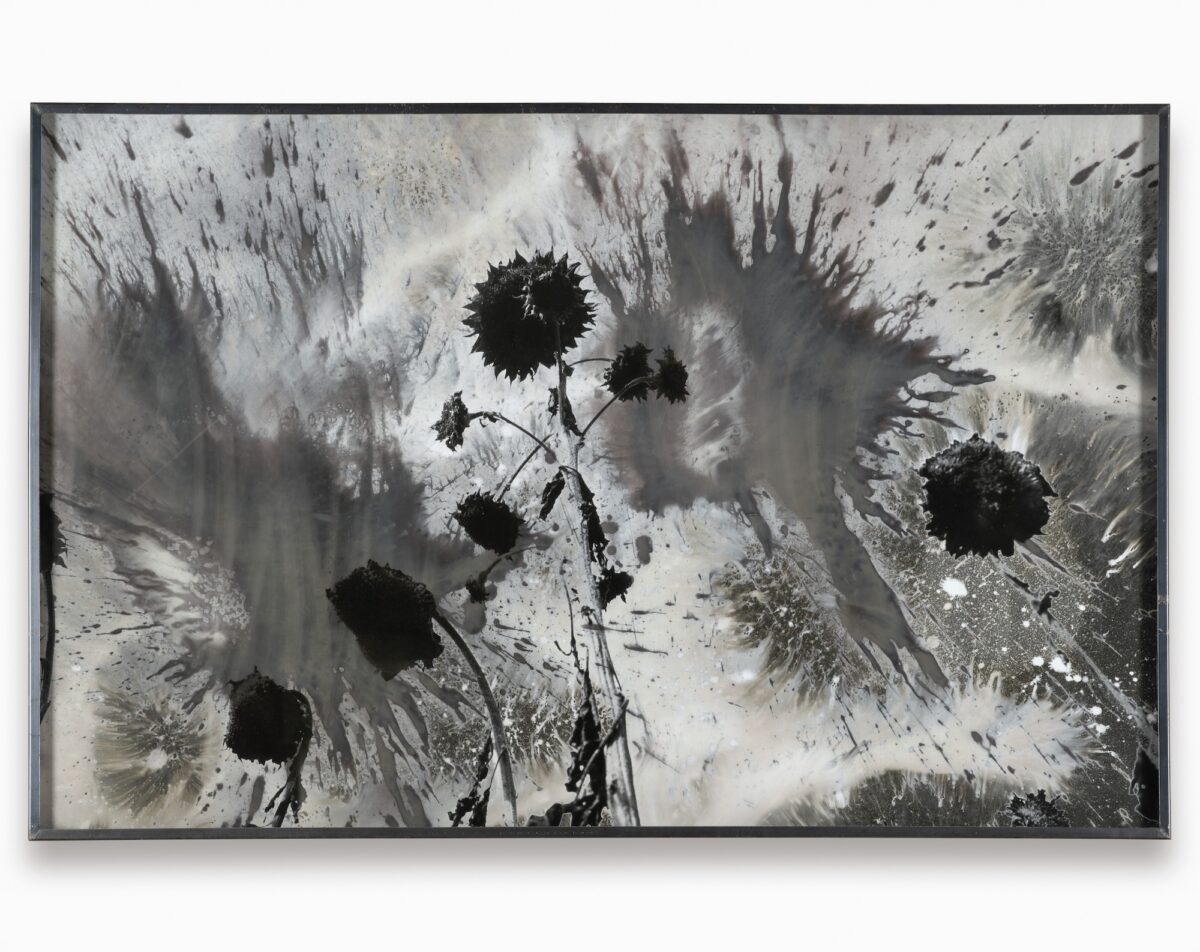
Kiefer often manipulates his photographs through techniques such as solarization and the application of metals and other materials that transform them physically and metaphorically. In Osiris (1985–91), the addition of heavy, opaque lead to the photograph’s top half creates a juxtaposition between its material properties and its ethereal image, functioning as an effective metaphor for alchemy. Likewise, by applying silver toner to the printed surfaces of works such as Feldblumen (Wildflowers) and Ukraine (both 1994–2012), he blurs distinctions between the photographic and painted image.Titled with a quotation from Immanuel Kant, Der gestirnte Himmel über uns und das moralische Gesetz in uns (The moral law within us, the starry heavens above us) (1969–2009) revisits an image from Kiefer’s Besetzungen (Occupations) series, a parodic travelogue in which the artist poses with a sieg heil salute at culturally charged European locations, appropriating and recontextualizing the taboo gesture to confront the historical weight of the Second World War. In the newer work, Kiefer overpaints the photograph’s top half in gouache, adding a star-filled sky that resonates with Kant’s line.
Hero und Leander (2012) is a vitrine sculpture that expresses Kiefer’s relationship with photography. It incorporates a metal bathtub of the sort he used to develop his first photographs and included in early performances, with coiled strips of photographic prints mounted on lead that unfurl from within the vessel. Its title alludes to the Greek legend of Hero, a priestess of Aphrodite who tends a lighthouse on one side of the Hellespont between Europe and Asia, and her lover, Leander, who drowns while swimming across the strait when the guiding light of Hero’s flame is extinguished.
ANSELM KIEFER, Punctum, April 25th–July 3rd, 2024, Gagosian New York
Punctum follows La photographie au commencement (Photography at the Beginning), the first retrospective to focus on Kiefer’s relationship with photography, which was organized by the Lille Métropole Musée d’art moderne, d’art contemporain et d’art brut (LaM) in Villeneuve-d’Ascq, France (2023–24). Angeli caduti (Fallen Angels) is on view at Fondazione Palazzo Strozzi, Florence, Italy, through July 21, 2024.
About the artist
Anselm Kiefer was born in 1945 in Donaueschingen, Germany, and lives and works in France. His work is collected by museums worldwide and has been permanently installed at the Musée du Louvre (2007) and the Panthéon (2020), both in Paris. Exhibitions include Louisiana Museum of Modern Art, Humlebæk, Denmark (2010–11); Shevirat Ha-Kelim (Breaking of the Vessels), Tel Aviv Museum of Art, Israel (2011–12); Beyond Landscape, Albright-Knox Art Gallery, Buffalo, NY (2013–14); Royal Academy of Arts, London (2014); Centre Pompidou, Paris (2015–16); L’Alchimie du livre, Bibliothèque nationale de France, Paris (2015–16); The Woodcuts, Albertina, Vienna (2016); Pour Paul Celan, Grand Palais Éphémère, Paris (2021); and Questi scritti, quando verranno bruciati, daranno finalmente un po’ di luce (Andrea Emo), Palazzo Ducale, Venice (2022). In 2017, he was awarded the J. Paul Getty Medal for his contribution to the arts.
